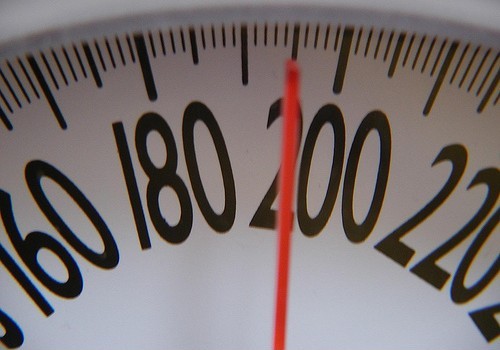
What Is The Thyroid Gland?
The thyroid is an organ that is located on the anterior portion of the neck in front of the trachea. This organ is actually an endocrine gland. As it is an endocrine gland, it doesn't have any ducts. It directly secretes hormones into circulation. There are 2 thyroid hormones; T3 and T4. They are secreted by the thyroid gland. These hormones regulate growth and development of different parts of the body. It is a vital gland because it affects almost all systems of the human body. A slight imbalance in the quantity of these hormones in the body can have enormous effects on different organs.

Hashimoto’s Disease – A Main Cause Of Thyroid Disorders
Hashimoto’s disease is also known as chronic lymphocytic thyroiditis. It is an auto immune disorder that attacks your thyroid gland. The body’s immune system starts to produce antibodies against thyroid tissues.The tissues become inflamed as a result, making them dysfunctional. This ultimately leads to an under-active thyroid gland – known as hypothyroidism. It causes all the symptoms of hypothyroidism. This disease is the most common cause of hypothyroidism in many countries including the United States. It is not hard to detect Hashimoto’s disease. It can be diagnosed easily and treated effectively but it can be fatal if left untreated.
- Important notification about information and brand names used in this slideshow!
- Photo courtesy of Tina by Flickr : www.flickr.com/photos/blurdom/237124257/

Are You Getting Fat Or Losing Weight Like Never Before?
Weight gain or weight loss is very common in people with thyroid disorders. If you notice sudden unexpected changes in your body mass and you also get a feeling of discomfort, you must see your doctor immediately. Thyroid disease can result in both, weight loss and weight gain. Hyperthyroidism causes weight loss whereas hypothyroidism results in weight gain. This is because T3 and T4 affect your basal metabolic rate (BMR). In the case of hyperthyroidism, BMR is raised causing weight loss while in case of hypothyroidism, BMR falls down which causes a rapid increase in body mass.
- Important notification about information and brand names used in this slideshow!
- Photo courtesy of mrd00dman by Flickr : www.flickr.com/photos/mrd00dman/2358726807/

Goiter – Neck Swollen Or Bulging Out More Than Usual
As you know, the thyroid gland is located in the anterior portion of the neck, so any swelling in that area should lead you to be suspicious of thyroid problems. Definitely pay an immediate visit to your doctor if you find your neck bulging out. In most cases, such swelling is indicative of goiter – an enlarged thyroid gland. The most common cause of goiter is a lack of iodine. Not all goiters cause symptoms but usually it can cause hoarseness, coughing, or difficulty swallowing. An iodine deficiency isn't the only cause, though — goiter can also develop as a result of Hashimoto’s disease, Grave’s disease, or thyroid cancer.

Irritated By Everything Around You – Mood Swings
Thyroid diseases can terribly affect your mood. Any patient with thyroid disease will either develop anxiety or depression. This is very common but still, it’s unlikely that emotional symptoms such as depression or anxiety will be the only sign of hyper or hypothyroidism. Patients suffering from hyperthyroidism may experience restlessness, irritability, anxiety, and unusual nervousness. On the other hand, patients who have developed hypothyroidism may experience depression and mild to severe fatigue. The more severe the disease, the more severe the mood swings. The patient may also experience some other symptoms such as early fatigue, insomnia or somnolence, tics, aches, paranoia and much more.
- Important notification about information and brand names used in this slideshow!
- Photo courtesy of zenojevski by Flickr : www.flickr.com/photos/le-chef/3581010157/

Feel Your Heartbeat – Pulse Changes
The thyroid hormones T3 & T4 have a great effect on the cardiovascular system and your heart rate in particular. These hormones have the tendency to increase the heart rate, cardiac output and cardiac contractility. These hormones enhance blood flow to different organs by promoting vasodilatation. In the case of hyperthyroidism, thyroid hormones are released in excess which greatly increases the heart rate. The pulse rate in case of hyperthyroidism can exceed 100 beats per minute (>100bpm). Such an increase in heart rate can cause difficulty in breathing, discomfort and palpitations. If you have hypothyroidism, the whole scenario is reversed, do you'd have a decreased heart rate and the pulse can fall to
- Important notification about information and brand names used in this slideshow!
- Photo courtesy of MilitaryHealth by Flickr : www.flickr.com/photos/militaryhealth/6884474822/

Unstoppable Hair Loss
Hair cells are the cells that have the fastest rate of growth in the body. At any time, most of your hair is growing. But metabolic changes in the body can quickly impair hair growth, resulting in hair loss. You might be surprised to know that growth of hair is greatly dependent on proper thyroid functioning. Impaired thyroid hormones can result in remarkable hair changes along with many other symptoms. Excess T3 & T4 (hyperthyroidism) can result in fine but very thin and weak hair all over your head. While low levels of T3 & T4 can result in excessive hair loss, not on the scalp only, but also elsewhere on the body.
- Important notification about information and brand names used in this slideshow!
- Photo courtesy of ishawalia by Flickr : www.flickr.com/photos/irrationalisha/6805224364/

Menstrual Irregularities Are Common In Hypothyroidism
Irregular menstruation or irregular periods are associated with many conditions and lifestyle changes. Both hyperthyroidism and hypothyroidism can alter menstruation. But mostly it is hypothyroidism that causes irregular periods. These disorders can be linked to different types of menstrual irregularities such as early menstruation or precocious puberty. A thyroid hormone imbalance in the body typically causes hormonal disturbances which can result in longer periods than usual. Women with thyroid disease do have periods but not in a regular pattern. Moreover, sometimes the periods get too heavy and last longer. Suffering from any of these conditions is a good reason to see your doctor. Never leave it untreated.
- Important notification about information and brand names used in this slideshow!
- Photo courtesy of menstruationstasse.net by Flickr : www.flickr.com/photos/menstruationstasse/6859656566/

Thyroid Disorder Or Menopause? Confused?
Many patients confuse the symptoms of thyroid disease for menopause symptoms. It is better to pay an early visit to your doctor if you suspect any symptoms that are indicative of thyroid disorders. It is not a good idea to think of these symptoms as symptoms of the menopause and wait for the symptoms to resolve spontaneously. Women are advised to be aware of the symptoms and signs of thyroid disorders and discuss them with their doctor if they have any concern about thyroid function. Fatigue, depression, weight gain (especially on the belly), or mood swings are the most frequent symptoms in both cases. It is hard to get the correct diagnosis without consulting a doctor.

Afraid Of Heat Or Irritated By Cold?
After getting stimulation from Thyroid Releasing Hormone (TSH), Thyroid gland releases T3 & T4 – thyroid hormones. T4 is the inactive form of thyroid hormone whereas T3 is the active form that actually alters the functions of different organs of the body. T3 in excess causes hyperthyroidism. This hormone has a direct effect on basal metabolic rate (BMR). High levels of T3 increase your BMR. The more the T3, the higher the BMR. This increase in BMR results in sweating and causes the body temperature to rise beyond normal. It is not fever though. In this state, patients get intolerant to heat. On the other hand, hypothyroidism lowers the body temperature and causes cold intolerance.
- Important notification about information and brand names used in this slideshow!
- Photo courtesy of Kevin Mann by Flickr : www.flickr.com/photos/kevmann16/80515620/







-In-Adults_f_280x120.jpg)








-And-Children-16-Warning-Signs-And-Symptoms_f_280x120.jpg)










Your thoughts on this
Loading...